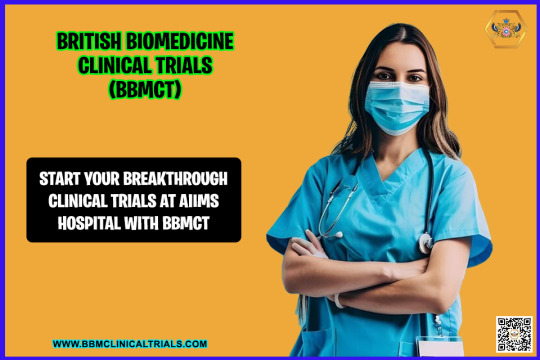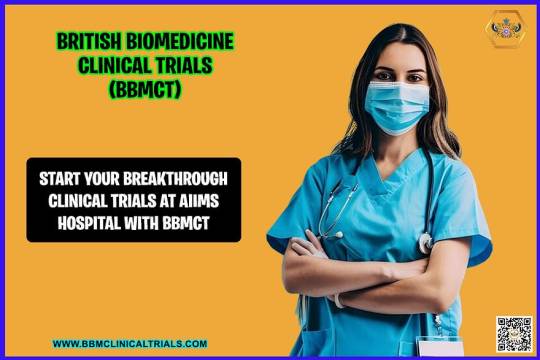#clinical trial oversight
Explore tagged Tumblr posts
Text

7 Ways Data Safety and Monitoring Boards Can Improve Data Protection
Improving data protection starts by creating a data protection policy. Your data protection policy will provide answers and insights for all data protection questions and protocols.
This policy can be as robust or simple as your organization sees fit, but at a minimum, it should:
Outline the measures taken to protect data.
Outline the responsibilities of each party involved in the data collection process.
Include a list of data that should be protected.
Procedures for monitoring and responding to any potential security breaches.
Specify how long data will be retained and when it should be destroyed.
#clinical trial oversight#clinical trials#dsmb#board management software#grc tools#dmc#data protection#Data Safety
0 notes
Text
The Best News of Last Week - 29 April 2024
1. Net neutrality rules restored by US agency

The U.S. Federal Communications Commission voted 3-2 on Thursday to reinstate landmark net neutrality rules and reassume regulatory oversight of broadband internet rescinded under former President Donald Trump.
2. Airlines required to refund passengers for canceled, delayed flights

DOT will also require airlines to give cash refunds if your bags are lost and not delivered within 12 hours.
The refunds must be issued within seven days, according to the new DOT rules, and must be in cash unless the passenger chooses another form of compensation. Airlines can no longer issue refunds in forms of vouchers or credits when consumers are entitled to receive cash.
3. How new mosquito nets averted 13 million malaria cases

Compared to standard nets, the introduction of 56 million state-of-the-art mosquito nets in 17 countries across sub-Saharan Africa averted an estimated 13 million malaria cases and 24,600 deaths. The New Nets Project, an initiative funded by Unitaid and the Global Fund and led by the Innovative Vector Control Consortium (IVCC), piloted the use of dual-insecticide nets in malaria-endemic countries between 2019 and 2022 to address the growing threat of insecticide resistance.
4. Germany has installed over 400,000 ‘solar balconies’

This new wave of solar producers aren’t just getting cheap electricity, they’re also participating in the energy transition.
More than 400,000 plug-in solar systems have been installed in Germany, most of them taking up a seamless spot on people’s balconies.
5. Voyager-1 sends readable data again from deep space

The US space agency says its Voyager-1 probe is once again sending usable information back to Earth after months of spouting gibberish.
The 46-year-old Nasa spacecraft is humanity's most distant object.
6. Missing cat found after 5 years makes 2,000-km journey home

Five years after it ran out the door, a lost cat was returned to a couple in Nevada after it was found thousands of kilometres away. The couple are praising the cat’s microchip for helping reunite them.
7. Restoring sight is possible now with optogenetics

Max Hodak's startup, Science, is developing gene therapy solutions to restore vision for individuals with macular degeneration and similar conditions. The Science Eye utilizes optogenetics, injecting opsins into the eye to enhance light sensitivity in retinal cells.
Clinical trials and advancements in optogenetics are showing promising results, with the potential to significantly improve vision for those affected by retinal diseases.
---
That's it for this week :)
This newsletter will always be free. If you liked this post you can support me with a small kofi donation here:
Buy me a coffee ❤️
Also don’t forget to reblog this post with your friends.
650 notes
·
View notes
Text

Start Your Breakthrough Clinical Trials At AIIMS Hospital With BBMCT

Clinical trials are the backbone of medical advancements, helping researchers and healthcare professionals find new treatments, therapies, and solutions to pressing health issues. In India, AIIMS (All India Institute of Medical Sciences) has long been at the forefront of healthcare excellence, and when combined with **British Biomedicine Clinical Trials (BBMCT)**, it offers world-class research facilities and clinical expertise for cutting-edge breakthroughs. In this article, we’ll explore how BBMCT at AIIMS provides unmatched support for clinical research and trials.
— -
### **World-Class Research Facilities Available**
AIIMS Hospital is renowned globally for its state-of-the-art research infrastructure. The research facilities at AIIMS are designed to cater to diverse medical specialties, making it an ideal location for conducting advanced clinical trials. The hospital’s vast campus houses modern laboratories, research centers, and equipment, all of which are equipped with the latest technology to support clinical research.
British Biomedicine Clinical Trials (BBMCT) leverages these facilities to create an environment where studies can progress smoothly and efficiently. Whether it’s pharmacokinetics, bioequivalence studies, or clinical pharmacology trials, BBMCT at AIIMS offers a comprehensive setup for all kinds of advanced research. This enables researchers to gather precise data, ensuring faster and more accurate results.
— -
### **Expert Clinical Trials Management Team**
The success of clinical trials depends largely on the expertise and experience of the team managing them. BBMCT at AIIMS boasts an experienced team of medical professionals, researchers, and trial coordinators who specialize in clinical research and trial management. This team oversees every aspect of the clinical trial process, from initial planning to the final data analysis.
The clinical trial management team at BBMCT follows international best practices in Good Clinical Practice (GCP), ensuring that all trials meet rigorous scientific and ethical standards. Their profound knowledge in regulatory compliance, patient safety, and data integrity is a key asset for any study looking to achieve reliable and actionable results.
— -
### **Access to Diverse Patient Populations**
A unique advantage of conducting clinical trials at AIIMS is the access to a highly diverse patient population. AIIMS caters to patients from various socio-economic backgrounds, ethnicities, and regions. This diversity enhances the generalizability and relevance of clinical trial outcomes, ensuring that findings are applicable to a broad spectrum of people.
BBMCT at AIIMS takes full advantage of this diverse patient pool, allowing researchers to study the effects of treatments on a wide range of individuals. This helps researchers to detect varying responses to interventions, ensuring that the clinical trial results are robust, representative, and suitable for global healthcare applications.
— -
### **Cutting-Edge Technology Integration Offered**
To stay ahead in the fast-paced world of clinical trials, BBMCT integrates the latest technological advancements in clinical research at AIIMS. From electronic data capture (EDC) systems to cloud-based analytics platforms, AIIMS and BBMCT are fully equipped with cutting-edge technologies that streamline trial processes and improve accuracy.
These technologies enable real-time monitoring of trial data, faster recruitment and retention of participants, and more efficient management of study documentation. Furthermore, AIIMS is constantly upgrading its infrastructure to incorporate new innovations, ensuring that trials benefit from the most advanced tools available in medical research.
— -
### **Robust Ethical Oversight Ensured Here**
Clinical trials often involve testing new treatments on human participants, making ethical oversight a critical part of the research process. At AIIMS, ethical considerations are a top priority. BBMCT ensures that all clinical trials are conducted in accordance with the highest ethical standards, including patient informed consent, confidentiality, and protection from harm.
AIIMS has a dedicated ethics committee that reviews and monitors each clinical trial to ensure compliance with national and international ethical guidelines. This oversight gives patients confidence in participating and reassures researchers that their trials are conducted responsibly, ensuring the integrity and credibility of the results.
— -
### **Collaborate With Leading Medical Experts**
When conducting clinical research at AIIMS with BBMCT, you gain access to some of the leading medical experts in various fields. AIIMS is home to renowned specialists and researchers across disciplines, including oncology, cardiology, neurology, and infectious diseases.
Collaborating with these experts not only enhances the quality of research but also allows for interdisciplinary approaches to clinical trials. BBMCT fosters an environment of collaboration, where your study can benefit from the expertise and innovative solutions provided by these thought leaders in medicine and clinical research.
— -
### **Streamlined Processes for Quick Trials**
The faster clinical trials progress, the sooner medical breakthroughs can be made. At BBMCT, the processes involved in clinical trials are streamlined to reduce unnecessary delays and inefficiencies. From patient recruitment to data collection and analysis, BBMCT ensures that every phase of the trial is executed promptly.
AIIMS’ established infrastructure and resources facilitate quick approvals, recruitment, and trial management, meaning that studies can progress without the common bottlenecks seen in other settings. This streamlined approach is critical in accelerating the development of new treatments and improving patient outcomes.
— -
### **Enhance Your Study’s Success Rates**
Clinical trials require precision, efficiency, and an in-depth understanding of the research process. BBMCT at AIIMS is dedicated to enhancing the success rates of studies by offering the right resources, expertise, and infrastructure. With world-class facilities, expert teams, and cutting-edge technology, BBMCT ensures that trials are conducted optimally and that every potential challenge is mitigated.
The strategic support provided by BBMCT helps in better trial design, data accuracy, and recruitment strategies, which ultimately increase the likelihood of achieving positive study outcomes. Whether you are testing a new drug or a medical device, BBMCT maximizes your study’s chances of success.
/media/4ba4cf5bfd511c0ae4ae8e305b8459ec
— -
### **Frequently Asked Questions (FAQs)**
**1. What makes BBMCT at AIIMS different from other clinical trial organizations?**
BBMCT at AIIMS offers a combination of world-class research facilities, access to diverse patient populations, and expert clinical trial management. The integration of cutting-edge technologies and robust ethical oversight ensures that clinical trials are conducted efficiently and ethically. Additionally, AIIMS’ reputation and access to leading medical experts make BBMCT a standout choice for clinical research in India.
**2. How does AIIMS ensure ethical oversight during clinical trials?**
AIIMS has a dedicated ethics committee that reviews all clinical trials before they begin. The committee ensures that the trials adhere to national and international ethical standards, protecting the rights and well-being of participants. Informed consent, privacy, and safety protocols are central to their oversight, making sure trials are conducted responsibly.
**3. Can international researchers collaborate with BBMCT at AIIMS?**
Yes, BBMCT encourages international collaboration. Researchers from across the globe can partner with AIIMS and benefit from its vast resources, medical expertise, and advanced research facilities. International collaboration is particularly valuable in improving the scope and impact of clinical trials by incorporating diverse perspectives and expertise.
**4. What patient populations can BBMCT at AIIMS access for clinical trials?**
AIIMS serves a diverse patient population from various socio-economic backgrounds and regions. This diversity allows researchers to assess the effectiveness of treatments on a broad spectrum of individuals, increasing the relevance and applicability of study outcomes. BBMCT ensures that clinical trials can tap into this wide variety of patient groups for robust data collection.
**5. How do BBMCT’s cutting-edge technologies improve clinical trials?**
BBMCT integrates advanced technologies like electronic data capture, real-time monitoring systems, and cloud-based analytics to streamline trial processes. These technologies improve the accuracy of data, reduce trial delays, and enhance participant management. The use of such tools also accelerates the trial timeline, ensuring faster results and quicker access to new treatments.
— -
### **Conclusion**
AIIMS Hospital, in partnership with **British Biomedicine Clinical Trials (BBMCT)**, offers one of the most advanced environments for clinical research in the world. With world-class research facilities, an expert clinical trials management team, and a commitment to ethical oversight, BBMCT ensures that each clinical trial conducted at AIIMS is a step towards scientific breakthroughs and improved patient care. The integration of cutting-edge technology and access to diverse patient populations further enhances the success rates of trials, ensuring that medical innovations reach the people who need them most. If you are looking to advance your clinical research, starting your breakthrough trials with BBMCT at AIIMS is a choice you can trust.
Subscribe to BBMCLINICALTRIALS YouTube channel for Research Insights
Be sure to subscribe to the **BBMCLINICALTRIALS YouTube channel** for exclusive access to the latest updates and in-depth insights into British Biomedicine Clinical Trials (BBMCT). Stay informed on cutting-edge research, clinical trial advancements, patient safety protocols, and breakthrough therapies being tested at AIIMS Hospital. Our channel provides expert discussions, industry trends, and detailed videos on the clinical trial process across various therapeutic areas. Whether you’re a healthcare professional, researcher, or simply interested in biomedical innovation, subscribing will keep you at the forefront of clinical research developments. Don’t miss out — join our community today!
#anya mouthwashing#batman#artists on tumblr#agatha harkness#captain curly#cats of tumblr#bucktommy#agatha all along#911 abc
4 notes
·
View notes
Link
This pre-print study -- a rigorous statistical analysis -- from the Cleveland Clinic does not bode well for the effectivness of the mRNA vaccines.
“Risk of COVID-19 increased with time since the most recent prior COVID-19 episode and with the number of vaccine doses previously received.” [emphasis mine.]
The good news is current variants are usually cause very mild symptoms.
#Covid#I enthusiastically got the first two does#as soon as I was eligible#I haven't had a booster#and the more I learn#the less likely I will#I had Covid this summer#the worst part was fatigue and no energy for a week#I think natural immunity is the only way honestly#at this point
2 notes
·
View notes
Text
Associate Medical Director/Med Dir - Medical Geneticist(Remote U.S)
Life Technologies (Thermo Fisher Scientific). United States – California, Remote Industry: Biotechnology / Pharma Work Schedule Standard (Mon-Fri)Environmental Conditions Office Job Description Summarized Purpose: Provides medical oversight of clinical trials to ensure company SOPs, client directives, good clinical practice, and regulatory requirements are followed…. Date posted: 11/20/2024 01:12…
0 notes
Text
Haleus: Leading the Way in Clinical Research

Haleus stands at the forefront of clinical research, revolutionising the way trials are managed. Our comprehensive Clinical Trial Management services ensure efficiency, compliance, and success at every stage of your clinical studies.
From meticulous Clinical Trial Operations planning to seamless execution, we understand the complexities of clinical research. Our solutions are designed to streamline processes, minimise delays, and maximise resource utilisation, ensuring trials stay on track and meet regulatory requirements.
With a strong emphasis on Clinical Trial Monitoring, we provide robust oversight to ensure data integrity, participant safety, and protocol adherence. Leveraging advanced technologies and expert teams, Haleus delivers real-time insights and proactive solutions to address challenges before they escalate.
Whether you're managing early-phase studies or large-scale trials, Haleus provides the expertise and innovation needed to navigate the intricacies of clinical research. Partner with us to bring your clinical studies to successful completion with confidence and precision.
#Clinical Trial Management#Clinical Trial Operations#Clinical Trial Monitoring#Clinical Research#clinical studies
1 note
·
View note
Text
Conclusion in Part 2
In Part 2, we concluded the following:
“BioNTech has no skills or experience in the development and manufacture of complex, biologic products, let alone gene therapy products. It should never have received a licence to manufacture SARS-CoV-2 injections.”
That should have been a red flag to regulators and governments around the world, but it wasn’t. The alleged pandemic, apparently, was more important.
That followed on from Part 1, where we learnt that BioNTech is a ‘virtual company’.
A virtual company is one that owns little other than its intellectual property rights (IPR = patents), and business acumen. All the extensive physical activities required to bring a drug to preclinical and clinical trials, plus for commercial sale, are outsourced to third party organisations (CDMOs and CROs).
We also discovered in Part 1 that a manufacturer of their drug substance (DS, or Active Pharmaceutical Ingredient - API) had received a scathing inspection report from FDA:
“Rentschler Biopharma, a German CDMO, was cited by the FDA with a Form 483 following an inspection that revealed nine observations focused on procedural gaps and records keeping.” This is the Form 483.
That’s enough to close a site down for months or even years, but they have been allowed to carry on. It should be glaring obvious, however, that BioNTech has no ability to carry out the oversight to correct these critical issues.
0 notes
Text
Why Biomarkers Matter In Bioanalysis- FDA New York - New York City, Buffalo

Biomarkers are transforming the medicine industry by providing insights into disease progression, drug efficiency, and patient health. It is crucial in developing new therapies, clinical trials, and ensuring the safety of medications and the advanced bioanalysis support it. The scientific teams of FDA New York - New York City, Buffalo play a key role in regulating and guiding these innovations. They ensure the safety and effectiveness of new treatments.
What Are Biomarkers?
Biomarkers are measurable indicators of biological states or conditions in the body. These indicators can be genes, proteins, enzymes, or hormones. They are used to identify diseases, measure their progression, or determine how well a treatment is working.
FDA’s Role in Biomarker Research and Bioanalysis:
The regulatory agency FDA New York - New York City, Buffalomanages the approval and regulation of new drugs and therapies that rely on biomarkers. The FDA has set strict guidelines for bioanalysis to ensure that biomarkers used in clinical studies are validated and reliable. By setting guidelines and providing oversight, the FDA New York helps ensure that new therapies are safe and efficient.
How Biomarkers Improve Drug Development and Clinical Trials:
Biomarkers play a major role in reforming drug development. It allows researchers to identify specific patient populations that are most likely to benefit from a particular drug, reducing the time and cost associated with trials. It allows life-saving therapies to reach patients faster.
The Importance of Biomarkers:
Personalized medicine tailors treatments to individual patients. This is where Biomarkers play a key role by allowing healthcare providers to predict how a patient will respond to a particular treatment. FDA New York - New York City, Buffalo advances personalized medicine by ensuring that the biomarkers are scientifically validated and clinically relevant. It ensures that patients receive treatments that are both safe and effective.
With the advancement of technology, identifying and measuring new biomarkers is getting easier. It can lead to more effective therapies.
Looking for a professional consulting team for clinical research? We offer data analysis plans for biomarkers, correlation to dose, and PK metrics, depending on the type of biomarkers and frequency of sampling from intense sampling to sparse data, planning and presentation of PK/PD data to regulatory agencies – FDA, EMA, other. Learn more at www.azuredeltaconsulting.com
#pharmacometrics new jersey - princeton#fda new york - new york city#regulatory strategy boston-cambridge#clinical study protocol san diego#research triangle park#modeling and simulation m&s north carolina#clinical pharmacology boston-cambridge#clinical study report san diego
0 notes
Text
Making Clinical Research Oversight Fit-for-Purpose
The title is a slightly edited copy of the title a discussion article in JAMA, that discusses some important issues in IRB oversight of clinical research. (Kass NE, et al. Making the Ethical Oversight of All Clinical Trials Fit for Purpose. JAMA. 2024), and is part of a special issue including a renewed version of the Declaration of Helsinki World Medical Association Declaration of Helsinki:…
0 notes
Text
Pediatric Clinical Trials Market Trends and Opportunities: Global Outlook (2023-2032)

The global demand for pediatric clinical trials was valued at USD 14845.5 Million in 2022 and is expected to reach USD 22783.2 Million in 2030, expanding at a CAGR of 5.5% between 2023 and 2030.
Pediatric clinical trials are essential for understanding how medical treatments, therapies, and vaccines affect children, who often respond differently to medications than adults. These trials are specifically designed to evaluate the safety, dosage, and efficacy of interventions in infants, children, and adolescents, ensuring that treatments are safe and effective for young patients. Given the ethical and regulatory complexities, pediatric trials require careful oversight, with special protocols to protect the young participants' rights, safety, and well-being. Conducting pediatric clinical trials involves challenges like limited patient populations, ethical considerations around informed consent, and the need for age-appropriate formulations and delivery methods. Despite these challenges, pediatric trials are critical to advancing child-specific medical care, helping to fill knowledge gaps and ensuring that children receive therapies that are scientifically validated for their age group. Recent innovations, such as adaptive trial designs and the use of biomarkers, have improved the efficiency and accuracy of pediatric trials, supporting more personalized and effective treatments for children.
The pediatric clinical trials market is influenced by several key trending factors, including:
Rising Prevalence of Pediatric Diseases: Increased rates of chronic conditions in children, such as asthma, diabetes, and neurological disorders, drive demand for pediatric-specific therapies and clinical trials.
Focus on Personalized Medicine: The growing trend towards personalized medicine creates demand for trials that focus on tailoring treatments based on a child's unique genetic and biological profile, improving outcomes and minimizing side effects.
Government and Regulatory Support: Regulatory agencies like the FDA and EMA are incentivizing pediatric trials through initiatives and funding, as well as offering pediatric exclusivity extensions, which encourage pharmaceutical companies to invest in trials for children.
Advances in Genomic and Biomarker Research: Improvements in genomics and biomarker identification are enabling trials to identify specific patient subgroups and track treatment responses more accurately, leading to better-targeted pediatric therapies.
Innovative Trial Designs: Adaptive trial designs, virtual trials, and decentralized models are emerging to address recruitment and retention challenges in pediatric populations, improving accessibility and efficiency.
Increased Awareness and Advocacy: Patient advocacy groups and public awareness campaigns are emphasizing the importance of pediatric research, which boosts trial participation rates and fosters collaboration between research institutions and families.
Expansion of Rare Disease Research: With a growing focus on rare diseases, more pediatric trials are targeting rare genetic and congenital conditions, creating new opportunities for innovation and targeted treatments in the pediatric population.
Ethical Advances and Patient-Centric Approaches: The trend toward patient-centered trials, with age-appropriate consent processes and child-friendly trial environments, is improving recruitment and retention in pediatric studies.
Technological Innovations: The use of mobile devices, wearables, and remote monitoring tools allows researchers to gather real-time health data from children in a less invasive manner, improving trial compliance and data accuracy.
Collaborative Efforts Among Stakeholders: Partnerships between academic institutions, pharmaceutical companies, government agencies, and nonprofit organizations are increasing, fostering resource-sharing and accelerating advancements in pediatric drug development.
Access Complete Report - https://www.credenceresearch.com/report/pediatric-clinical-trials-market
Key Players
Synteract
ICON Plc
Syneos Health
Medpace Inc
PPD Inc
Premier Research
LabCorp Drug Development
QPS Holdings
Pfizer Inc
The Emmes Company LLC
IQVIA Inc
Others
Growth opportunities in the pediatric clinical trials market are being shaped by various factors that address the unique needs of young patients and the evolving landscape of pediatric healthcare. Key opportunities include:
Expansion of Precision Medicine: As precision medicine advances, there is a growing need for pediatric trials that tailor treatments to children’s genetic, biological, and environmental factors, paving the way for more personalized and effective therapies.
Increased Focus on Rare Pediatric Diseases: The prevalence of rare and genetic conditions in children creates a significant demand for specialized clinical trials, as pharmaceutical companies and researchers work to develop targeted therapies for underserved patient populations.
Growth in Pediatric Oncology Trials: Pediatric cancer treatments remain a high-priority area, with opportunities for clinical trials to develop therapies that improve outcomes and reduce side effects specific to childhood cancers.
Development of Age-Appropriate Formulations: There is an opportunity for pharmaceutical companies to innovate in developing child-friendly formulations, such as liquids or chewables, which improve adherence and accessibility for pediatric patients.
Use of Digital Health Technologies: Integrating wearables, mobile apps, and remote monitoring technologies into trials offers opportunities for collecting real-time data, enhancing patient engagement, and allowing participation from home, which is particularly valuable in pediatric studies.
Rise of Decentralized and Hybrid Trial Models: Decentralized trials and hybrid models improve trial access for children and families by minimizing travel requirements, thereby increasing enrollment and diversity while reducing patient burden.
Global Expansion and Emerging Markets: There are untapped markets for pediatric clinical trials in regions with emerging healthcare systems, where unmet medical needs in pediatric care provide opportunities for trials to reach a broader patient base.
Collaboration with Patient Advocacy Groups: Partnering with advocacy organizations focused on children’s health can boost trial awareness, foster recruitment, and facilitate trial design that aligns with the needs and expectations of pediatric patients and their families.
Government Incentives and Regulatory Support: Increasing government incentives and regulatory support for pediatric drug development, such as priority review vouchers and pediatric exclusivity extensions, encourage more pharmaceutical companies to invest in pediatric trials.
Artificial Intelligence and Data Analytics: The use of AI and advanced data analytics in pediatric clinical trials presents an opportunity to streamline patient identification, predict trial outcomes, optimize trial designs, and enhance data interpretation for more accurate results.
Segmentation
By Disease or Condition
Oncology Trials
Pediatric Infectious Disease Trials
Neurological Disorders Trials
Pediatric Respiratory Trials
By Age Groups
Infants (0-2 years)
Children (2-11 years)
Adolescents (12-17 years)
By Therapeutic Approach
Pharmacological Trials
Device Trials
Behavioral Intervention Trials
By Trial Design
Randomized Controlled Trials (RCTs)
Non-Randomized Trials
Adaptive Trials
By End-User
Pharmaceutical and Biotechnology Companies
Academic and Research Institutes
Pediatric Hospitals
By Regulatory Considerations
Regulatory Services
Compliance Consulting
By Technology Adoption
Pediatric Biomarker Studies
Pediatric Pharmacogenomics Trials
Browse the full report – https://www.credenceresearch.com/report/pediatric-clinical-trials-market
Contact Us:
Phone: +91 6232 49 3207
Email: [email protected]
Website: https://www.credenceresearch.com
0 notes
Text

5 Tips CROs Can Use To Attract More Clinical Trial Managers
Clinical trial managers play a crucial role in the success of a trial, and it is important for CROs to ensure that they hire and retain the best talent available. By utilizing these five strategies, CROs can improve their CTM recruitment efforts and increase their chances of finding the best candidates for their organization.
#clinical trial oversight#clinical trials#dsmb#board management software#grc tools#dmc#artificial intelligence
0 notes
Text
BBMCT: Initiate New Medical Research at AIIMS Hospital

The world of biomedicine and clinical trials is constantly evolving, and when it comes to groundbreaking research and innovative treatments, **British Biomedicine Clinical Trials (BBMCT)** stands at the forefront. As a trusted partner for advanced clinical research at **AIIMS Hospital**, BBMCT brings cutting-edge technologies, expert management, and access to diverse patient demographics, making it an ideal choice for initiating new medical studies. This partnership focuses on advancing clinical research while maintaining the highest standards of patient care, ethical compliance, and scientific rigor. Below, we explore the core elements that make BBMCT a pivotal force in the medical research landscape.
## Cutting-Edge Research Facilities Offered
BBMCT, in collaboration with **AIIMS Hospital**, offers state-of-the-art research facilities designed to meet the most stringent demands of modern clinical trials. The infrastructure at AIIMS, one of India’s premier medical institutions, is equipped with advanced laboratories, testing equipment, and specialized care units for patient monitoring. This environment ensures that all phases of clinical research, from pre-clinical testing to post-study analysis, are conducted with the highest precision and accuracy. Researchers have access to world-class resources that allow them to execute complex medical studies efficiently and safely, ensuring better outcomes for patients and more reliable data for sponsors.
## Expert Management for Clinical Studies
One of the key strengths of **BBMCT** is its expert management of clinical studies. The experienced team at BBMCT oversees every aspect of a clinical trial, ensuring that each study is conducted according to the highest standards. From trial design and protocol development to patient recruitment and data collection, BBMCT’s team brings years of expertise in clinical research management. This ensures that clinical trials are streamlined, efficient, and compliant with all regulatory requirements. The team’s focus is on optimizing the trial process, minimizing delays, and maximizing the integrity of the results, which ultimately improves the reliability of the research.
## Access a Varied Patient Demographic
One of the significant advantages of conducting clinical research at AIIMS Hospital through BBMCT is access to a **diverse patient population**. AIIMS is a tertiary care hospital with a large and varied patient demographic, including individuals from different regions, socioeconomic backgrounds, and ethnic groups. This diverse pool of patients enhances the generalizability of clinical trial results, ensuring that findings are relevant to a broad population. The ability to recruit patients with various medical conditions and from different age groups allows researchers to explore how treatments perform across different demographics, providing more comprehensive and inclusive data.
## Incorporate Advanced Technologies Seamlessly
In today’s rapidly advancing medical field, **technology integration** is essential for effective clinical trials. BBMCT, in partnership with AIIMS Hospital, ensures the seamless incorporation of cutting-edge technologies to optimize clinical research. From artificial intelligence (AI) and machine learning algorithms to advanced diagnostic tools, these technologies aid in the design, execution, and monitoring of clinical studies. AI-powered analytics can help in patient recruitment, predicting trial outcomes, and improving data analysis efficiency. Wearable health devices and remote monitoring tools also provide real-time data, ensuring patient safety and helping to track progress during clinical trials. By incorporating these technologies, BBMCT ensures that clinical trials are both innovative and efficient.
## Thorough Ethical Oversight Provided
When conducting clinical research, maintaining **ethical standards** is paramount to protecting patient safety and maintaining public trust. BBMCT, in collaboration with AIIMS Hospital, places a strong emphasis on **ethical oversight** at every stage of the clinical trial process. The research team ensures that all trials comply with regulatory guidelines and ethical norms, adhering to the principles of informed consent, patient confidentiality, and data protection. An independent ethics committee continuously reviews study protocols to ensure they meet the highest ethical standards, providing oversight to ensure that patients are treated with the utmost care and respect. This dedication to ethics fosters a culture of responsibility and integrity in clinical research.
## Collaborate with Leading Medical Specialists
BBMCT’s partnership with **AIIMS Hospital** offers access to some of the most renowned **medical specialists** across various fields of medicine. These specialists play a crucial role in designing and executing clinical trials, providing expert insights into the treatment or intervention being studied. Collaboration with experts from diverse medical disciplines ensures that clinical studies are approached from a multidisciplinary perspective, increasing their chances of success. Whether it’s oncology, cardiology, neurology, or infectious diseases, the availability of specialists enables the development of more comprehensive research protocols and enhances the quality of the trials. This collaboration fosters innovation and accelerates the discovery of new treatments.
## Streamlined Processes for Rapid Trials
Speed is often of the essence in clinical research, especially when dealing with **life-threatening diseases** or emerging health crises. BBMCT understands the importance of minimizing delays and has implemented **streamlined processes** to ensure that trials are completed quickly and efficiently. From expedited regulatory approvals to rapid patient recruitment and efficient data management, BBMCT has optimized every stage of the trial process. The close-knit collaboration with AIIMS Hospital also enables faster decision-making and coordination between various departments, reducing time lost in administrative processes. This focus on speed ensures that critical medical interventions reach the market faster, benefiting patients who are waiting for new treatments.
## Boost Your Study’s Success Rate
The success rate of clinical trials is often influenced by a variety of factors, including study design, patient recruitment, and data quality. With BBMCT’s comprehensive approach to clinical research at AIIMS Hospital, studies are designed with a focus on maximizing the **success rate**. BBMCT’s expertise in trial management ensures that trials are well-planned and executed, with careful attention to all details. The recruitment process is tailored to ensure that the right patients are selected for the right trials, and advanced monitoring techniques are employed to track patient progress. Additionally, the integration of technology and expert oversight further boosts the chances of a study’s success, ensuring that data is accurate and meaningful, leading to valid conclusions.
/media/e8892c99bc3ad9cc9d79bde5525d717d
## FAQs about BBMCT at AIIMS Hospital
**1. What makes BBMCT a trusted partner for clinical trials at AIIMS Hospital?**
BBMCT is trusted due to its expert management of clinical studies, advanced research facilities, and access to a diverse patient population at AIIMS Hospital. The partnership ensures high-quality, efficient trials with ethical oversight, collaboration with specialists, and the incorporation of advanced technologies. These factors combine to create a robust platform for medical research that maximizes success rates and accelerates innovation.
**2. How does BBMCT ensure patient safety during clinical trials?**
BBMCT ensures patient safety by following rigorous ethical guidelines and continuously monitoring patients during trials. The institution has a dedicated ethics committee that reviews protocols, and safety measures are built into every stage of the trial. In addition, advanced technologies such as real-time patient monitoring tools and AI-driven analysis ensure quick identification and response to any safety concerns.
**3. Can BBMCT help with recruiting patients for clinical trials?**
Yes, BBMCT has access to a large and diverse patient pool through its collaboration with AIIMS Hospital. This allows for efficient and effective patient recruitment across different medical conditions, age groups, and demographics, ensuring that the trial has the right participants to yield valid results.
**4. How does BBMCT incorporate technology into its clinical research?**
BBMCT integrates cutting-edge technologies such as AI, machine learning, wearable devices, and remote monitoring tools into clinical trials. These technologies optimize trial design, enhance patient recruitment, improve monitoring, and streamline data analysis, making the research process more efficient and insightful.
**5. What role do specialists play in the clinical trials managed by BBMCT?**
Specialists from AIIMS Hospital collaborate closely with BBMCT to design, execute, and oversee clinical trials. Their expertise in various medical fields ensures that trials are comprehensive, well-designed, and scientifically rigorous. Their input helps to optimize research protocols, leading to more accurate results and successful outcomes.
## Conclusion
In conclusion, **BBMCT** represents a forward-thinking and reliable partner for initiating new medical research at **AIIMS Hospital**. With its state-of-the-art facilities, expert trial management, and access to a wide-ranging patient demographic, BBMCT is ideally positioned to help advance medical science. The incorporation of the latest technologies and the commitment to maintaining high ethical standards ensure that each clinical trial conducted is a step toward finding innovative treatments that can improve patient outcomes. By collaborating with leading specialists and employing streamlined processes, BBMCT enhances the chances of success in clinical research, contributing to the ongoing evolution of medical care. Whether you are a researcher or a patient, BBMCT offers a platform for advancing medical knowledge and improving health outcomes on a global scale.
Subscribe to BBMCLINICALTRIALS YouTube channel for Research Insights
Be sure to subscribe to the **BBMCLINICALTRIALS YouTube channel** for exclusive access to the latest updates and in-depth insights into British Biomedicine Clinical Trials (BBMCT). Stay informed on cutting-edge research, clinical trial advancements, patient safety protocols, and breakthrough therapies being tested at AIIMS Hospital. Our channel provides expert discussions, industry trends, and detailed videos on the clinical trial process across various therapeutic areas. Whether you’re a healthcare professional, researcher, or simply interested in biomedical innovation, subscribing will keep you at the forefront of clinical research developments. Don’t miss out — join our community today!
#artists on tumblr#anya mouthwashing#batman#bucktommy#captain curly#cats of tumblr#agatha harkness#agatha all along#911 abc#dan and phil
3 notes
·
View notes
Text
Semaglutide Injections: Separating Fact from Fiction on Side Effects

As the popularity of semaglutide surges for diabetes and obesity reduction purposes, questions swirl regarding its injection safety given the novelty of its weight loss usage.
With myths propagating unfounded fears, it's prudent examining primary literature to determine: are semaglutide injections safe?
By scrutinizing statistic realities behind both sound byte scares and manufacturer reassurances, one garners balanced safety perspectives allowing personalized decision-making.
Gastrointestinal Issues Pose Transient Troubles
FACT: Like most injectables stimulating physiological pathways, semaglutide frequently causes temporary nausea, vomiting, diarrhea and abdominal discomfort. But severity proves mostly modest.
Across numerous studies, around 68% endure stomach-related side effects. However, adopting slow dosage ramp-ups prevents a majority from discontinuing treatment. Remaining vigilant with symptom monitoring allows managing through initial tolerability hurdles.
No Validity to "Fat Melting" Organ Damage Risks
FICTION: Alarmist reports of semaglutide “dissolving organs” lack scientific credibility, representing scaremongering hyperbole. There exist zero verified cases of heart, kidney, liver or other tissue damage attributable to fat cell lysis from semaglutide.
While minor enzyme and biomarker level shifts occasionally manifest, these reflect biochemical adjustments lacking pathological manifestations. Don’t let sci-fi theories needlessly deter considering semaglutide.

Thyroid Cancer Link Remains Unfounded
FICTION: Despite attention-grabbing headlines, no compelling research confirms semaglutide heightens thyroid cancer risk. Small murine trials reveal benign nodules, but human studies prove reassuring with no pathology emergence even over multiple years of monitoring.
Until substantiating evidence materializes, disregard dramatic web stories tracing unproven connections between semaglutide and thyroid cancer.
Improved Heart Metrics Beyond Weight Loss
FACT: In fact, multiple investigations demonstrate semaglutide favorably effects cardiovascular markers like arterial plaque and blood pressure irrespective of weight change. Such observations reinforce theories of direct vascular benefits.
So rather than endangering heart health, existing data suggests potential protective effects from semaglutide!
Maintaining Reasonable Precautions Suffices
When weighing therapeutic choices, gather insights from unbiased medical sources instead of alarmist cyber spots. Though unconditionally deeming semaglutide utterly “safe” ignores biological intricacies, its risk-benefit ratio proves favorable for motivated patients committed to proper oversight.
Stay vigilant to transient side effects, monitor labs routinely, follow healthcare provider advice and make informed choices amidst partial knowledge. With judicious precautions, semaglutide offers transformational potential!
Frequently Asked Questions
Is there proof semaglutide causes pancreatitis?
No. Despite some physicians citing pancreatitis risks due to other GLP-1 drug links, multiple large trials found no cases of clinically evident pancreatitis attributable to semaglutide. The factual risk appears very low.
Can semaglutide seriously damage kidneys?
No evidence supports semaglutide directly damaging kidneys. Minor transient creatinine elevations occasionally manifest but lack pathological manifestations. Monitor function, but don’t panic over theoretically risks lacking human confirmation.
Does semaglutide increase suicidal thoughts?
Despite isolated case reports, large reviews spanning thousands found no statistical difference vs placebos, including across mental health disorder subgroups. Individual experiences vary, warranting monitoring.
#weight loss clinic in los angeles#weight loss treatment#best weight loss medication#weight loss clinic#weight loss medication
0 notes
Text
Associate Medical Director/Med Dir - Oncology/Hematology - Remote U.S
Life Technologies (Thermo Fisher Scientific). United States – North Carolina, Remote Industry: Biotechnology / Pharma Work ScheduleStandard (Mon-Fri)Environmental ConditionsOffice Job Description Summarized Purpose: Provides medical oversight of clinical trials to ensure company SOPs, client directives, good clinical practice, and regulatory requirements are followed. Attends and… Date posted:…
0 notes
Text
Precision Monitoring, Proven Results: How Haleus Ensures Success in Clinical Trials
In the ever-evolving world of clinical trials, precision, accuracy, and regulatory compliance are not just standards; they are vital lifelines for every successful study. At Haleus, we understand the complexities and high stakes of clinical monitoring, which is why we have made it our mission to deliver excellence through precise oversight and a dedicated team of experienced monitors. Here’s how our approach to precision monitoring drives proven results in clinical trials, meeting stringent standards every step of the way.
Why Precision Monitoring Matters
Clinical trials are intricate and multifaceted. They must comply with stringent regulatory standards, adapt to shifting landscapes, and ensure participant safety and data integrity. With so many moving parts, it’s easy for details to be overlooked, potentially compromising the study’s validity. Precision monitoring mitigates these risks, ensuring that every aspect of the trial is carefully managed, documented, and adjusted as needed. In turn, this meticulous oversight can significantly enhance trial quality, efficiency, and outcome reliability.
The Haleus Approach to Precision Monitoring
Haleus employs a comprehensive monitoring framework designed to optimise the clinical trial process. Our seasoned team of clinical monitors works closely with sponsors, sites, and regulatory bodies to ensure that every detail is meticulously managed. Here’s how our approach ensures that each trial meets—and often exceeds—stringent standards:
1. Expertise in Complex Regulatory Landscapes
Regulations in clinical trials are both extensive and continuously evolving. Navigating this complex landscape requires expertise, adaptability, and a deep understanding of the requirements at both global and local levels. Haleus monitors bring extensive knowledge and experience, enabling them to expertly guide trials through these regulatory challenges. Their proficiency ensures that our studies remain compliant, thereby reducing the risk of costly delays and setbacks.
2. Precision Oversight for Reliable Data Collection
Reliable data is the cornerstone of any clinical trial, and precise monitoring is key to ensuring this reliability. At Haleus, our monitors use state-of-the-art tools and methodologies to oversee every step of data collection, from patient recruitment to follow-up assessments. This precision oversight not only enhances the accuracy and consistency of data but also identifies any deviations early, allowing for timely corrective actions.
3. Adaptive Monitoring for Dynamic Trial Needs
No two trials are the same. Each study brings unique challenges, participant demographics, and logistical considerations. Haleus prides itself on adaptive monitoring, which means our teams are equipped to adjust their approach as needed. Whether it’s accommodating unforeseen site needs, adapting to real-time data, or integrating new regulatory guidance, Haleus monitors are skilled at responding swiftly and effectively.
4. Continuous Training and Development
Precision monitoring demands that clinical monitors stay ahead of the curve. Haleus invests in continuous training and professional development, ensuring our monitors are always equipped with the latest knowledge, technology, and best practices. This commitment to development not only benefits our clients but also strengthens our team, allowing us to maintain the highest standards of oversight across every trial.
5. Collaborative Success with Sponsors and Sites
Successful clinical trials are a collaborative effort. Haleus fosters open communication with sponsors and sites to ensure alignment of objectives and adherence to protocols. This collaborative approach, combined with our rigorous monitoring practices, creates a foundation of trust and transparency, empowering our clients and study partners to reach successful outcomes with confidence.
Proven Results That Make a Difference
Haleus’ commitment to precision monitoring doesn’t just make a difference; it drives measurable, positive outcomes. Our clients consistently benefit from reduced trial timelines, minimized regulatory risks, and enhanced data quality, all of which contribute to faster approvals and market readiness. Through this rigorous, detail-oriented approach, Haleus has become a trusted partner in clinical trial monitoring, helping clients navigate the challenges of research and development with proven expertise.
Closing Thoughts: The Haleus Advantage
In a field where precision and reliability are paramount, Haleus sets the benchmark for clinical trial monitoring. Our unwavering dedication to excellence, paired with a team of knowledgeable and adaptive monitors, allows us to not only meet but often exceed the expectations of our clients and the regulatory bodies they work with. With Haleus, clients can trust that their trials are in capable hands, guided by a commitment to precision monitoring and driven toward success by a foundation of proven results.
Whether you’re planning a new study or looking to optimize an ongoing trial, Haleus’ precision monitoring approach ensures your clinical research remains on course, compliant, and successful. Reach out to learn more about how Haleus can help your next trial achieve results with precision, reliability, and efficiency
0 notes
Text
Benefits of Intelligent Document Processing

Intelligent document processing solutions have evolved greatly with advancements in artificial intelligence and machine learning. With the ever-increasing amount of documents that businesses deal with daily from contracts and customer records to marketing collateral and financial reports finding meaningful insights has become more challenging than ever. This article analyses how intelligent document processing solutions provide immense benefits to organizations by automating repetitive tasks and improving efficiency.
What is Intelligent Document Processing?
Intelligent document processing utilizes machine learning and natural language understanding to analyze and comprehend the content within documents. Unlike traditional optical character recognition (OCR) which simply converts images into machine-readable text intelligent document processing goes further by recognizing entities keywords and semantics and understanding the meaning and context behind text.
Key Capabilities Of Intelligent Document Processing
Entity and Attribute Extraction: It can automatically recognize important entities like people companies dates locations etc. along with their corresponding attributes from within documents.
Keyphrase Detection: It can identify the most significant phrases topics and subject matters discussed throughout a collection of documents to help users find relevant information quickly.
Document Classification: It can organize and route documents accurately based on their type and contents assisting with the automation of workflows that depend on understanding document types.
Language Translation: For multinational organizations, it allows the extraction of insights from documents in different languages by providing machine translation into a common language for further processing and analysis.
Also Read: Intelligent Document Processing: New Trends in 2024
Benefits of Intelligent Document Processing
Some of the key benefits include:
Improved Insights for Decision Making: By automatically extracting structured data and insights from unstructured documents at scale AI document processing helps organizations surface trends anomalies and patterns that would be nearly impossible to uncover manually.
Automation of Repetitive Tasks: Many routine documentation processes like data entry document classification processing of form fields etc. that previously required human labor can now be automated with AI freeing up staff for higher value activities and improving productivity.
Enhanced Customer Experience: For customer-facing organizations the ability to rapidly search all customer documents and interactions to find answers improves support quality while reducing resolution times and boosting customer satisfaction levels.
Areas of Implementation
There are several key departments and use cases where intelligent document processing solutions are proving invaluable for organizations:
Legal: For handling lease agreements contracts case files etc. help in the automation of routine legal work risk assessment due diligence contract validation and knowledge management with insights from past documents.
Healthcare: In processing patient records clinical trial data and medical literature it assists with improved diagnosis personalized treatment options outcomes-based research and ensuring compliance.
Finance: Solutions useful for automation and oversight of processes involving invoices receipts bank statements etc. along with fraud detection audits and accelerating financial closures.
Conclusion
With intelligent document automation software enterprises can realize a wide range of operational strategic and financial benefits by unlocking AI-powered insights from their existing documents. Opt for automated document processing workflows with Zenphi - the no-code AI platform. Leverage intelligent document extraction and classification to unlock insights improve efficiencies and streamline processes without writing any code. Start optimizing your operations today with Zenphi.
0 notes